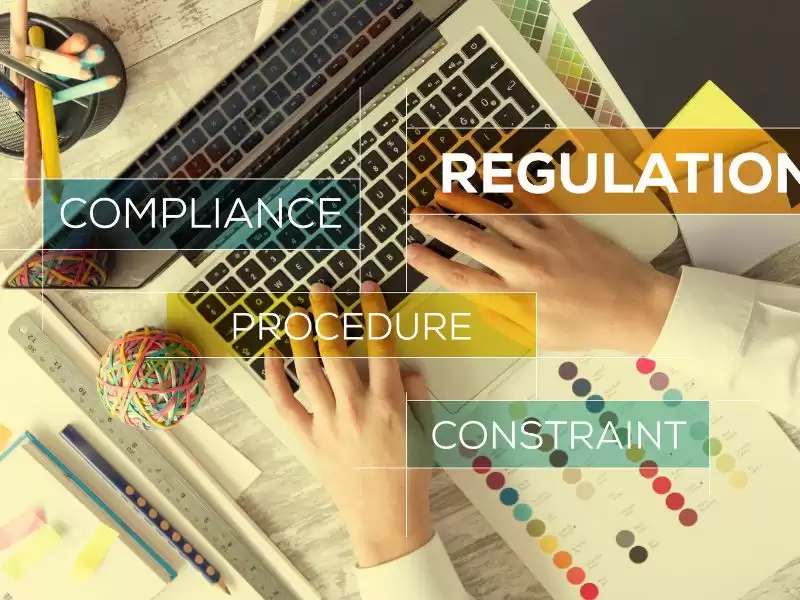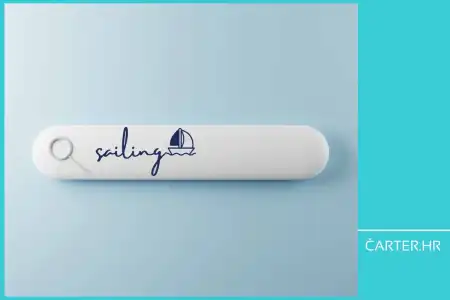
- 21.03.2023.
- Regulations
Protecting a company name is a practice that not only gives you standard legal protection, but you should also consider it an excellent marketing tool. Find out about the trademark protection process and why you should actually protect your company name.
The name, logo, emblem, symbol, label or other distinguishing features of products and/or marketed services can be protected by a trademark.
The name of a commercial company (entered in the court register at the commercial court) / association/organization can be protected by a trademark if that name is used to mark a product and/or service.
A trademark (registered trademark) is a form of the legal protection of the market identity of products and services and is governed by the Trademark Act.
Trademark law
A trademark may consist of any symbols, particular words, including personal names, or of drawings, letters, figures, colours, the shape of the product or the packaging of the product, or sounds, provided that such elements are suitable for:
- distinguishing the products or services of one company from the products or services of other companies
- display in the register in a way that enables the competent authorities and the public to determine the exact and precise object of protection that the trademark provides to the trademark holder
The trademark holder can be any natural or legal person. Native-born and legal persons regarding trademark protection in the Republic of Croatia enjoy the same rights as domestic natural and legal persons if this results from international agreements or the principle of reciprocity.
A trademark registration gives the trademark holder exclusive rights arising from it.
The owner of a registered trademark, regardless of his rights acquired before the date of filing the application or the priority date of the registered trademark, has the right to demand that all third parties who do not have his consent are prevented from using it in commercial traffic, in connection with products or services, any element that infringes the proper stamp so that:
- Any symbol identical to the trademark and used in relation to products or services that are identical to those for which the brand is registered,
- Any symbol identical to the trademark or similar to the brand and used in relation to products or services that are identical or similar to the products or services for which the trademark is registered if there is a likelihood of misleading the public in the Republic of Croatia; the possibility of misleading includes the possibility of associating that sign with the trademark,
- Any symbol identical to the trademark or similar to the brand, regardless of whether the products or services for which the trademark is used are identical, comparable, or not similar to those for which the trademark is registered and if that trademark has a reputation in the Republic of Croatia and the use of that sign without justification reason unfairly exploits the distinctive character or reputation of such a mark or damages them.
The holder of a registered trademark has the right to demand that the following be prevented:
- highlighting the symbol on the products or on their packaging
- offering products or placing them on the market or storing them for these purposes under that symbol, or offering or providing services under that symbol
- import or export of products under that symbol
- use of the symbol as a trade name or company name or part of a trade name or part of a trade company name
- use of that symbol on business documents and in advertising
- the use of such a symbol in comparative advertising in a manner that is against the regulations of the European Union or the regulations of the Republic of Croatia on misleading and comparative advertising
The trademark holder has the right to use his trademark concerning the products or services it is registered for.
A mark may be transferred independently of any business transfer in relation to some or all of the goods or services for which it is registered.
The transfer of the entire company includes the transfer of the trademark unless, in accordance with the legal regulations governing the transfer, there is an agreement stating otherwise or circumstances that clearly dictate otherwise.
Against a person who has violated a trademark by taking one of the actions referred to in Article 11 of this Act without authorization, the holder of the trademark may demand the determination of the violation, termination of the violation, or the prohibition of such and similar violations in the future.
Protection procedure
The application for trademark registration is submitted to the State Intellectual Property Office.
The application for trademark registration must contain:
- application for trademark registration
- information about the applicant
- a list of products or services for which registration is requested
- the appearance of the trademark that meets the requirements established by law
The applicant must clearly and precisely identify the products and services for which trademark protection is requested so that the competent authorities and economic entities can determine the extent of the protection requested based solely on the application.
Suppose the conditions that a trademark application must meet are met, and there are no fundamental reasons for refusing registration. In that case, the information from the application is published in the official gazette of the Office.
An international trademark application based on a national trademark application or federal trademark registration is submitted to the Office.
The applicant of an international trademark application can be any holder of a national trademark application or holder of a federal trademark registration if he is a citizen of the Republic of Croatia or has a residence there, or has a natural and active industrial or commercial enterprise there.
The effects of European Union trademark applications submitted, and European Union trademarks acquired before July 1, 2013, are extended to the territory of the Republic of Croatia with that date.
For the registration procedure, administrative fees and costs of the process are paid following special regulations.
Why protect the company name?
One of the reasons is identity and recognition. Using your name or an imitation of your logo by another company can lead to confusion among consumers and reduce the recognition of your company.
Legal protection: By protecting a company name, you gain legal protection, which means you can prevent other companies from using your name or logo, and you can also take legal action if your intellectual property rights are violated.
Business reputation: By protecting the company name, you protect the business's reputation, because company's name can be vital to building and maintaining a business reputation. By protecting your company name, you can ensure that your company is associated with quality and professionalism and prevent your reputation from being damaged by impersonation or identity theft.
Marketing and advertising: The company name is one of the critical elements in the company's marketing strategy. By protecting your business name, you can create a trademark for your business and use it as a marketing tool to promote your products or services.
Company value: A company's name can be one of a company's most valuable assets. Protecting the company's name makes it more valuable and attractive to investors, customers and business partners.
In short, protecting the company name significantly affects the company's future business.
Categories of trends
- News
- Sale
- Marketing
- SEO
- Web design
- Social media
- Technology
- Regulations
- Management
- Education
- Finances
- User experience
Newsletter
Sign up for the newsletter and receive the latest trends and tips straight to your inbox







